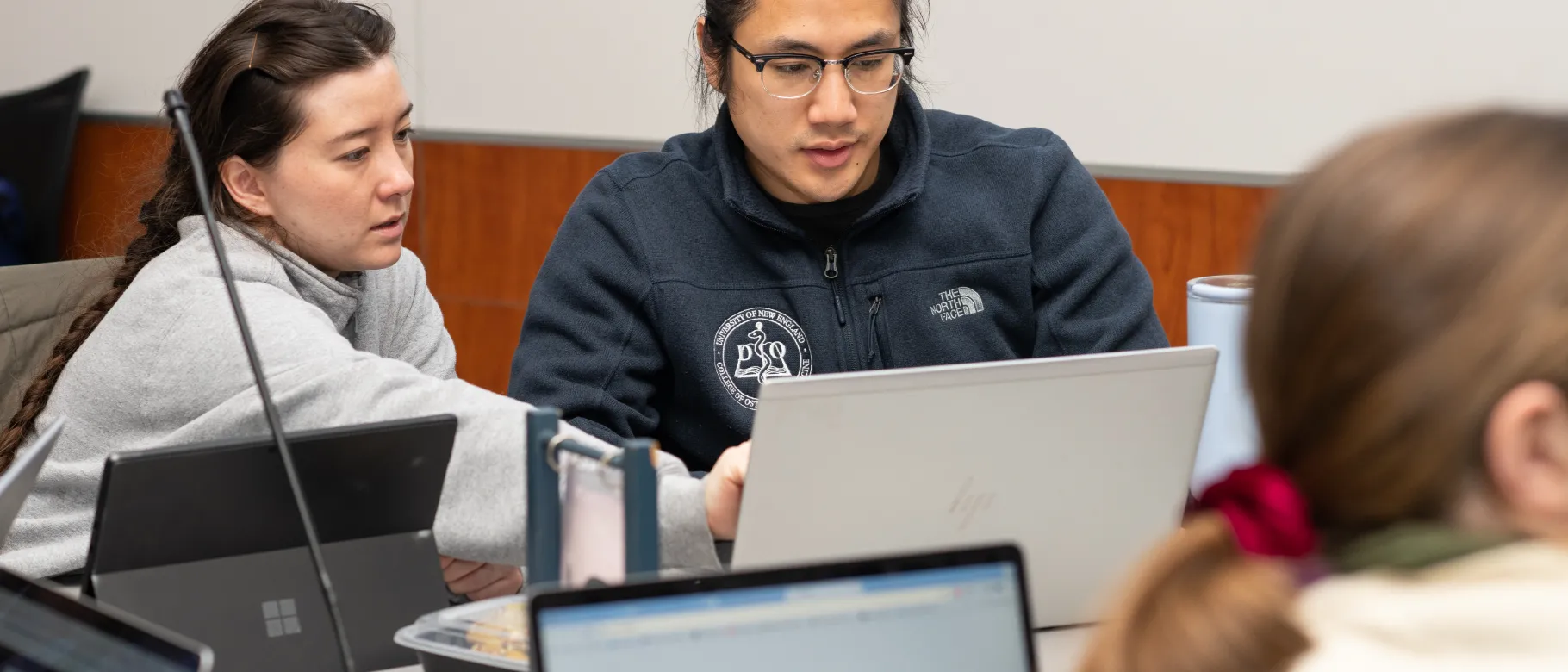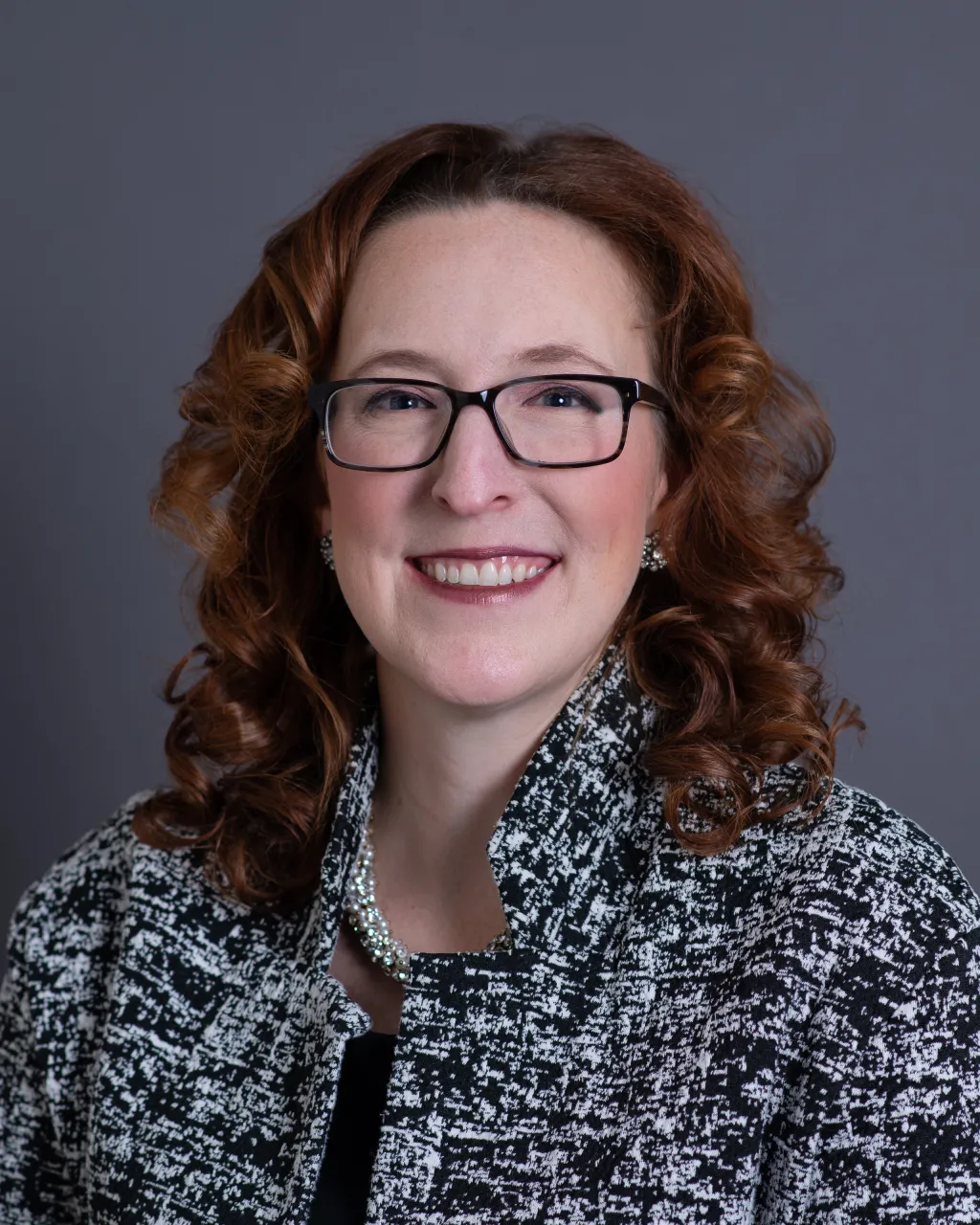UNE COM’s Resiliency in Leadership program sets new standard in medical education

The University of New England College of Osteopathic Medicine (UNE COM), Maine’s only medical school, is breaking new ground in medical education with its Resiliency in Leadership program, a four-year curriculum that focuses on developing leadership skills while building emotional resilience in students.
The Resiliency in Leadership (RIL) program, designed to help students thrive in the face of the intense pressures of medical school and their future careers, is a new method of carrying out UNE COM’s commitment to developing excellent, well-rounded physicians.
“We recognized early on that leadership and resiliency training were missing from medical education,” said Stacey Pierce-Talsma, D.O., associate dean of Academic Affairs at UNE COM and co-director of the RIL program. “We wanted to give students the tools to lead themselves and others, and to manage the challenges they’ll face throughout their careers.”
A New Approach to Leadership Training
What sets UNE COM’s program apart is its emphasis on applied learning.
While some medical schools have leadership tracks, few offer such comprehensive training with a focus on practice and reflection, Pierce-Talsma said. Beginning in their first year, students participate in weekly virtual lectures and application sessions, where they work through real-world leadership challenges. Each session includes small group discussions, allowing students to share personal experiences and build a support network.
Topics covered range from imposter syndrome and stress management to nutrition and meditation, Pierce-Talsma said. Students have led sessions on compassion in medicine, best practices for learning, productivity in medical school, growth mindset in challenging environments, and addressing perfectionism, among others.
“We want students to develop not just leadership skills but the emotional intelligence and self-awareness that make for resilient leaders,” Pierce-Talsma explained.
During their third and fourth years, students on clinical rotations continue to engage in leadership development by interacting with health care leaders at their clinical sites.
The program culminates in a capstone project, where students are required to conduct research or lead a leadership-focused initiative. These projects often address real-world issues within their clinical environments and are designed to showcase the leadership skills students have built over the course of their education.
Real Results for Students
For students like Sarah Trent (D.O., ’27), the impact of the Resiliency in Leadership program has been significant.
Trent, a second-year medical student at UNE COM, described how the program has helped her manage the challenges of medical school.
“The program taught me to prioritize my mental health, take breaks without guilt, and build strategies to avoid burnout,” she said. Trent added that the leadership skills she’s learned are not only helping her excel academically but are preparing her for leadership roles in her future medical career.
UNE COM’s first cohort of students in the RIL program are now in their fourth year, and many are aiming to pursue leadership positions once they graduate, such as becoming chief residents or presenting their research at national conferences.
“We’re hoping to see students step into leadership roles in their residency programs as a result of the skills they’ve gained in this program,” said Pierce-Talsma.
Gaining National Attention
As burnout rates increase among health care professionals, UNE COM’s focus on resiliency and leadership is gaining the attention of schools across the country. Few medical schools — and even fewer osteopathic programs — offer this level of leadership training, but Pierce-Talsma said there is definite interest among peer institutions.
“We’ve had other schools reach out, interested in adopting elements of our program,” she said. “It’s clear that leadership and resiliency training are not just beneficial — they’re essential to producing competent, compassionate physicians.”

